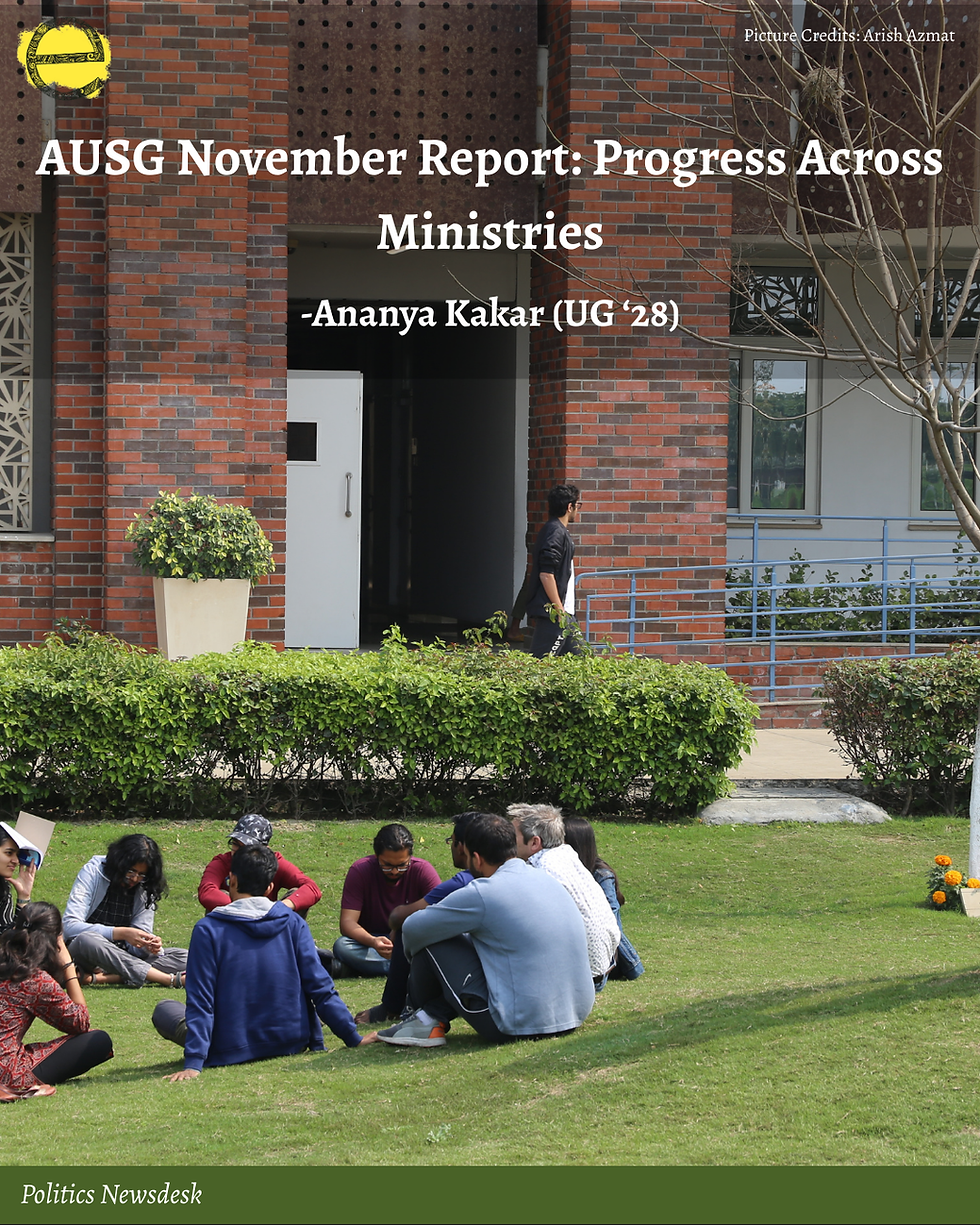Drafting Committee introduces new SG structure in first open meeting
- The Edict
- Jul 23, 2022
- 3 min read
By Yashika Singla, UG '24
The Constitution Drafting Committee (CDC) held an open meeting on 21st July to present the ideas they had been working on to the student body, take comments, and make clarifications.
The maximum turnout was 24 people out of which 10 were CDC members from the 15-member committee. The given agenda of the meeting was to discuss the progress made by the CDC, the new structure of the Student Government (SG), and propose election timelines.
Prior to the meeting, the CDC shared a draft Constitution with the student body which comprehensively encapsulates all the progress CDC has made to date in consultation with the members currently and those who have served the Student Government.
Yasashvi Paarakh, CDC member from the Undergraduate Batch of 2023 (UG23) informed the attendees that the CDC has decided to preserve the 15-member House of Representatives (HoR) and Cabinet structure instead of a student union, because its functioning between the administration and student body has been established previously. She mentioned that the union option can be looked at in the future. The low engagement of the current Ashokan student body adds to the rationale behind not taking up the union, or increasing the number of elected members within the HoR.
The draft Constitution looks at addressing the problem of conflict of roles and responsibilities between the HoR and Cabinet. It also distinctly outlines the roles of the President and the Leader of Opposition (LO).
Harsh Gupta, CDC member from UG23 explained that the basic plan is to have a norm where altering procedures, when needed, is done by editing the Rules of Procedure. This primary rulebook of how the SG will work procedurally will be open to constant changes. The Constitution will respect the core beliefs and principles behind the SG and not be subjected to regular amendments.
The CDC additionally proposed the new position of Prime Minister (PM) who will be the head of Cabinet. The PM will not be a member of the HoR or a Minister; the Election Commission will roll out separate affidavits for this role, so that accountability exists beyond any party bias that might come into Student Government. Via the PM, the SG can prove its democratic legitimacy to a figure outside the HoR and avoid political power getting too autonomous and centralized.
Another accountability mechanism proposed is the provision of Floor Tests that can be raised by the LO to ensure SG is fulfilling its duties, though the procedure of this has not been fleshed out as of now.
Raunaq Singh Bawa, UG24 said that the President-PM model existed previously to which Harsh responded that they had heard, in earlier HoRs, something similar used to exist but was mysteriously dissolved by a “fascist” President. Harsh and Yashasvi clarified how this structure is separate from that, as the role of PM as head of the cabinet did not exist much back then; in the very early years of SG, various ministries had not been developed as clearly as they are now.
As observed by an attendee, the draft Constitution's inherent faith in the ideas of goodwill, trust, and collaboration fails to learn from past experiences of dynamic and tense political circumstances. Based on this observation, they called for more stringent checks and balances to ensure structural accountability in the new SG.
Many clarifications were sought in the meeting regarding the potentially dissolved Ministry of Parliamentary Affairs and Financial Ministry that will respectively turn into a Public Relations Office and a Treasurer reporting directly to the President. These are more SG-facing bodies than the admin or student body, explained Harsh and Yashasvi.
The efficiency of this model in keeping SG in check, a new recusal policy that gives up to 4 weeks of holiday to members, and managing conflict of interests within the SG were also points raised by several attendees.
The CDC has promised to have more open meetings about the ongoing drafting process
to see what students have to say about the changes and incorporate the same into making a fairer and more coherent document to guide the SG.







Comments